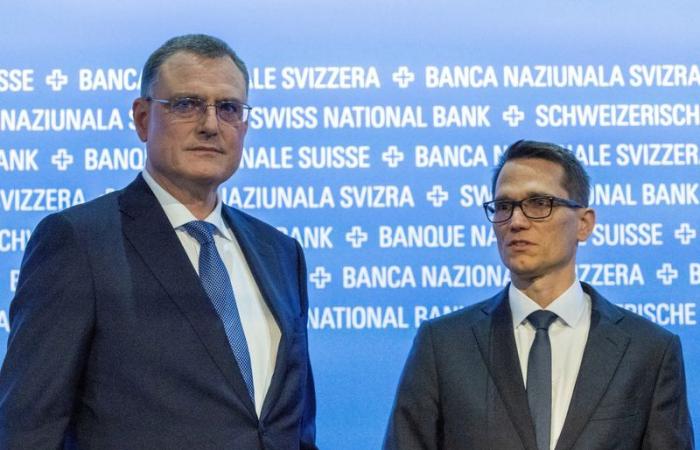New rules to regulate the Swiss banking sector and managing a huge balance sheet that risks leading to massive losses top the list of challenges facing the next head of the Swiss National Bank, Martin Schlegel, according to economists.
Mr. Schlegel will take over as president of the central bank at the end of September, replacing Thomas Jordan, who is retiring prematurely after 12 years at the head of the institution.
The 47-year-old, who began his career as Jordan’s intern at BNS 20 years ago, will first have to emerge from his mentor’s shadow and forge his own identity.
“Thomas Jordan will be difficult to follow because he is a first-rate economist who has been able to control inflation in difficult times,” said Stefan Gerlach, chief economist at EFG Bank and former deputy governor of the Bank. ‘Ireland.
Another economist, who asked not to be named, said Mr Schlegel should move from a role as tactician – he is currently responsible for implementing the SNB’s monetary policy – to that of supervisor of its objectives and direction.
“Mr Schlegel will now have to make the major strategic decisions regarding monetary policy,” added the economist. “It’s a completely different game.
At the press conference following his appointment on Wednesday, Schlegel emphasized continuity, emphasizing his commitment to the SNB’s price stability mandate.
Although this target of keeping inflation between 0 and 2 percent has been achieved, the central bank led by Mr. Jordan has not been without criticism.
One of the main concerns is its balance sheet – almost 860 billion Swiss francs ($958.86 billion), held mainly in bonds and stocks.
For two years, it has been unable to make a payment to the Swiss government or cantons, while currency fluctuations and valuation losses have led to a record loss of 132 billion Swiss francs in 2022.
The SNB also paid 7.4 billion francs to commercial banks last year, after interest rates turned positive.
“How can we continue policy with this massive balance sheet and how can we reduce it? Do you even want to reduce it?” said Sarah Lein, a professor at the University of Basel and former SNB economist.
“A central bank cannot go bankrupt because it can always print money, but significant losses could have a negative effect on the credibility of the SNB, the most important asset for a central bank.
Although making a profit is not part of the SNB’s mandate, large losses can lead to political pressure when Switzerland’s cantons and central government do not receive the money they expected.
Some economists have advocated entrusting part of the balance sheet to a sovereign wealth fund in order to reduce risks.
FINANCIAL STABILITY
Supporting Switzerland’s financial stability is another key role of the SNB – a task that has become more pressing following the takeover of Credit Suisse by UBS last year.
In addition to creating a banking giant with a balance sheet twice the size of the Swiss economy, there is no longer any possibility of another Swiss bank coming to the rescue if the enlarged UBS finds itself in trouble.
“If UBS has a problem, the SNB and Switzerland have a problem too,” said Adriel Jost, an economist at the Swiss Economic Policy Institute.
“Ultimately, the issue of banking regulation is crucial and the SNB has every interest in playing an important role in discussions with the government and the financial regulator.
Mr Schlegel – an SNB lifer – may also have to respond to criticism that the central bank has been too insular and conservative in its communication and thinking.
“The BNS’s approach needs to change – it’s a fairly closed operation,” said Charles Wyplosz, of the Institute for Advanced Studies in Geneva.
The SNB has also been criticized for not doing enough to tackle carbon emissions from the companies it invests in.
Mr. Schlegel told reporters on Wednesday that climate change was important, but analysts do not expect the SNB to change its investment strategy soon.
Mr Lein, of the University of Basel, does not expect a significant change in the SNB’s monetary policy under Mr Schlegel, with the priority remaining on price stability and preventing significant changes in the value of the franc – whether up or down.
“The main objective of monetary policy has been achieved, so there is no need to change,” she said.
Mr. Schlegel didn’t give much information Wednesday, saying only: “I think over the next few months and years you will have enough opportunities to get to know me.”
($1 = 0.8969 Swiss franc) (Reporting by John Revill; Editing by Catherine Evans)






